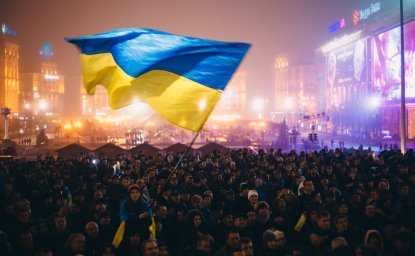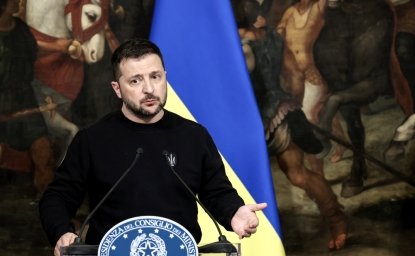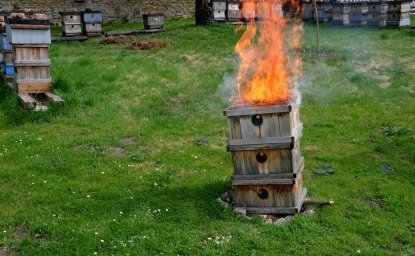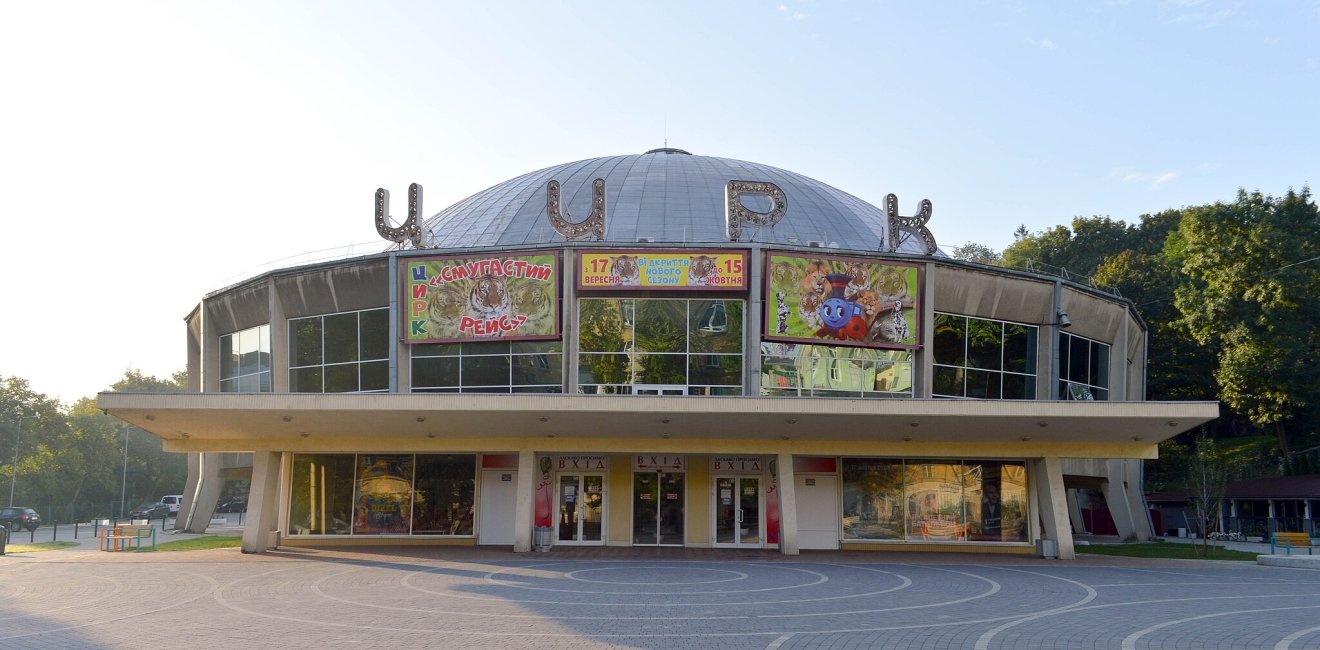
A blog of the Kennan Institute
No place in Ukraine has been immune from the suffering of war over the past two and a half years. But even as men and women from across Ukraine have been fighting at the front and as their children have been exposed to constant trauma, uncertainty, and loss, military and civilian authorities, joined with various performing arts organizations, have tried to create pockets of tranquility so that children might forget about living through a time of war, even briefly.
Special performances by the Lviv State Circus this past spring and summer have been among those efforts to protect childhood’s wonder. Partnering with the Lviv Regional Military Administration and the charity My Dad Protects Ukraine, the circus staged special performances for more than 1,500 children from across the Lviv region, a relatively peaceful area in western Ukraine. These audiences included many whose parents are fighting in eastern Ukraine. As Lviv Military District Deputy Chief Hrystyna Zamulka put it in a quote on the Rayon.Morshyn website, “Childhood should be happy. Unfortunately, our enemy is trying to take it away from Ukrainian children. Today we are able to be at this performance thanks to our defenders, thanks to your parents.”
Housed in a concrete domed arena typical of Soviet-era circus buildings from the 1960s, the Lviv company remained part of a provincial circus circuit which fed to ever higher-ranking companies in capitals such as Kyiv, and then on to Leningrad and Moscow. This regional status, however, never diminished the joy the company brought to children throughout the city and region.
All Ukrainian circuses struggled following independence, as did many performing arts institutions throughout the country. The Lviv company added an ice show and a water circus to attract new audiences. Director Roman Zdrenyk told journalist Kulkeba Alina last December that no circus in Ukraine has been able to mount large-scale acts for some time. Some of the country’s leading performers head abroad and do not return. He complained about a shortage of clowns.
Such deficiencies, he argued, have made Ukrainian circuses more innovative as they try to meet audience demands with fewer resources. Circus managers have come to rely on younger performers and new technologies such as laser shows to enchant viewers. The current war has amplified these trends.
Lviv’s Hapsburgian history has shaped the local circus. The aquatic acts mentioned by Zdrenyk can trace their development back to the city’s Sidoli Circus, which brought performers from Vienna to perform in water tanks as early as 1891. Cinema sessions—a distant precursor to today’s video and laser shows—arrived at Lviv circuses from the imperial heartland in 1896. And, as everywhere throughout Hapsburgian lands, equestrian and acrobatic acts have long held fascination for local audiences.
The war has given this company renewed life as children come from small towns and villages to seek moments of joy. Audience feedback is immediate, measured by enthusiastic applause for the various acts. This summer’s performances for children whose parents are at the front demonstrated once more how important circuses are to Ukrainian life. These performances reminded circus artists in Lviv and elsewhere that the reason for their existence has not faded away. Now, more than ever, Ukraine’s children need the kind of unexpected delight that a circus ring has always provided.
The opinions expressed in this article are those solely of the author and do not reflect the views of the Kennan Institute.
Author

Former Wilson Center Vice President for Programs (2014-2017); Director of the Comparative Urban Studies Program/Urban Sustainability Laboratory (1992-2017); Director of the Kennan Institute for Advanced Russian Studies (1989-2012) and Director of the Program on Global Sustainability and Resilience (2012-2014)

Kennan Institute
The Kennan Institute is the premier US center for advanced research on Eurasia and the oldest and largest regional program at the Woodrow Wilson International Center for Scholars. The Kennan Institute is committed to improving American understanding of Russia, Ukraine, Central Asia, the South Caucasus, and the surrounding region though research and exchange. Read more

Explore More in Focus Ukraine
Browse Focus Ukraine
How Divided Are United Ukrainians?

Building a Thriving Ukrainian Design Community Now

Ukraine Seeks to End the War. What's Wrong With the “Peace Scenarios”?



